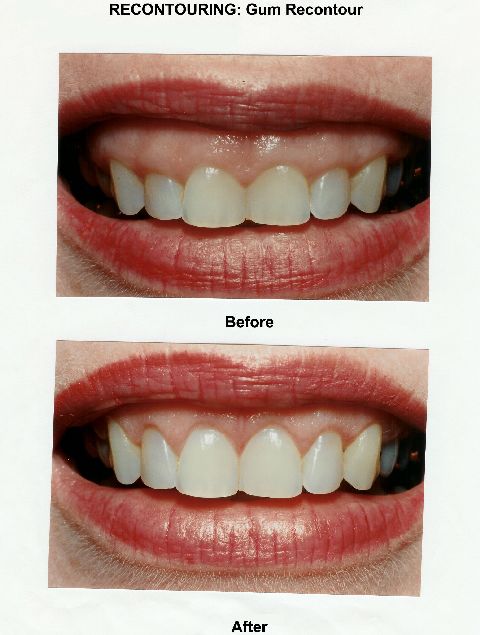Gum Treatment for Gum Disease & Gingivitis
Gum Disease & Gingivitis
Gum disease, also known as periodontal disease and pyorrhea, is an inflammatory condition affecting the tissue surrounding a tooth and is the leading cause of tooth loss.
Gingivitis is a bacterial infection of the tissue in the mouth and a potential precursor of gum disease. Once gum disease sets in, the toxins produced by the bacteria damage the teeth’s connective tissue and bone, effectively destroying them and fostering tooth loss.
We encourage that plaque and calculus (also known as tartar) should be removed through ultra-gentle professional cleanings, and sometimes, if it’s been a while since having your teeth cleaned, through the additional procedure of deep scaling and root planing.
A local anesthetic may be administered during these procedures. Dr. Luther may also administer a localized antibiotic to treat more “resistant” bacteria housed in the pockets of your gums, and possibly recommend a medicated mouthwash to be used as a regular part of your home regimen.
Since bone and gum recession/loss is not visible to the naked eye, if left undetected, periodontal disease may contribute to tooth loss. So, it is very important to visit Dr. Luther for professional examinations and dental cleanings to identify gum disease.
Here are some common signs of gum disease you and your dentist can look for:
- Bleeding gums during tooth brushing or otherwise
- Sensitive, red or swollen gums
- Bad breath
- Teeth that are loose or appear to have shifted
Schedule Your Dental Appointment
Causes of Gum Disease
Improper Dental Hygiene: If plaque is not removed through daily dental hygiene practices and regular professional dental cleanings, bacteria may set in and cause gingivitis, which may eventually result in gum disease.
Organic changes in the mouth: Changes that occur in metabolism and hormone levels during pregnancy, puberty, and menopause may affect the organic balance in the mouth and make teeth more susceptible to gum disease.
Medical conditions: Serious conditions that affect the body’s ability to produce sugar (such as diabetes or kidney disease) may contribute to periodontal disease. Furthermore, the Center for Disease Control has found an association between certain illnesses (including diabetes, stroke, and heat attack) and gum disease. Finally, medications used to treat medical conditions may produce the overgrowth of gums. Overgrown gums are more susceptible to bacteria and gum disease.
Saliva Flow Inhibitors: Certain medications that produce oral side effects or dry mouth syndrome (xerostomia) may contribute to a reduction of protective saliva flow, and potentially to gum disease. Seniors may be more susceptible to dry mouth syndrome because of the natural reduction of salivary flow associated with age.
Poor Functional Habits: Teeth grinding or clenching may impair the surrounding tissue and is a possible contributor to gum disease.
Causes of Gum Disease
Gingivitis: Plaque and its by-products irritate the gums, making them tender, inflamed, and likely to bleed.
Periodontitis: Unremoved plaque hardens into calculus (tartar). As plaque and calculus continue to build up, the gums begin to recede (pull away) from the teeth, and pockets form between the teeth and gums.
Advanced Periodontitis: The gums recede farther, destroying more bone and the surrounding ligament. Teeth, even healthy teeth, may become loose and need to be extracted.
Related Blog Articles:
How Do I Know If I Have Periodontal Disease?
Oral Probiotic…What it Is and Why It’s Good
And there’s a new product on the market that can help. Its called Evora Plus…an Oral Probiotic. This one-of-a-kind probiotic mint naturally supports gum and tooth health while freshening breath and whitening teeth…
I Was Diagnosed with Periodontal Disease — Now What?
- Non-surgical procedure called “Scaling and Root Planing” (SRP) – done at Timbercrest Dental Center by a Registered Dental Hygienist
- Referral to a specialist (Periodontist) for Surgery…



